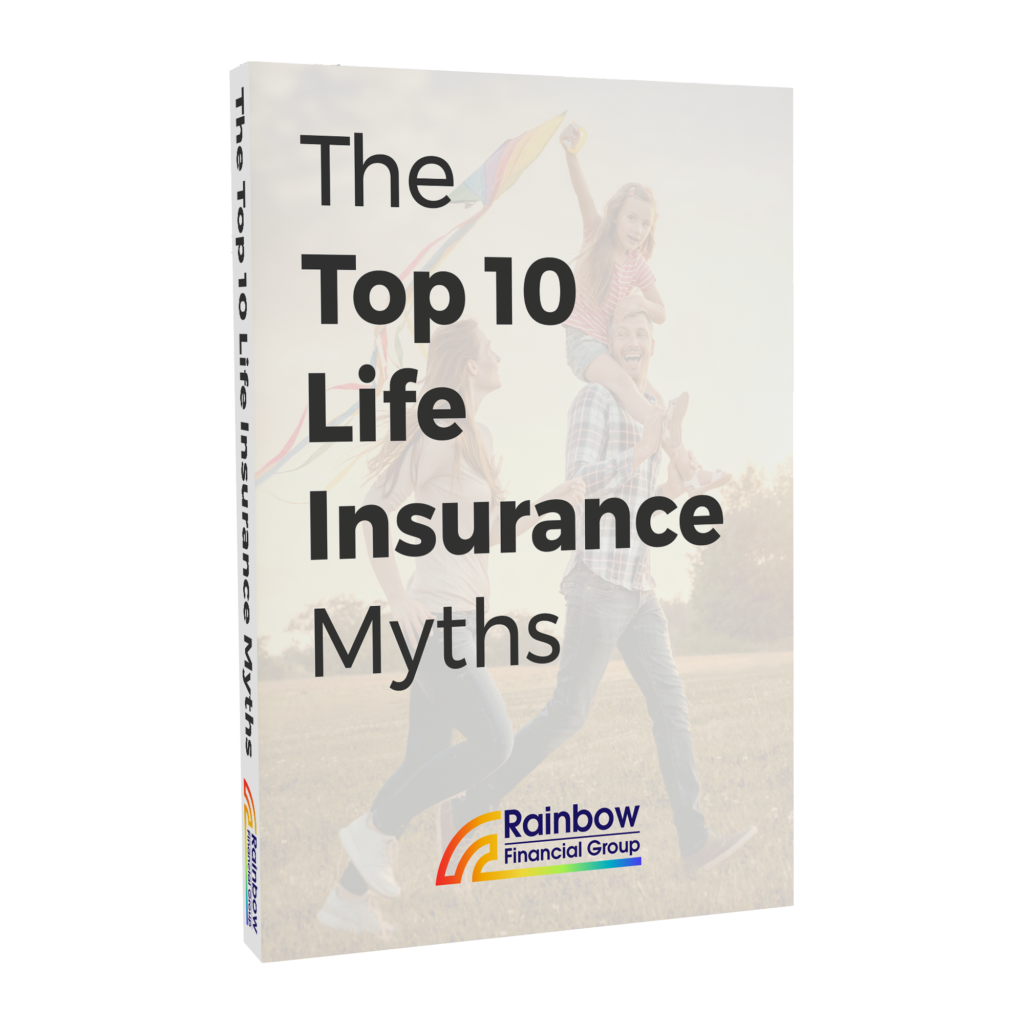Life Insurance Solutions
A crucial part of your financial plan, life insurance can help protect your family or business.
Protect Your Financial Future
Let us help you with your life insurance needs.
Financial Safety
Life Insurance provides options for debt protection, income replacement, and estate planning. It can also protect a business from instability in the case of the death of a business owner or partner, help fund college planning, and be used for supplement retirement income (tax free).
Customized Coverage
We are contracted with top rate insurance companies and can find you the best premium. We can conduct a cash flow analysis to determine the true amount of insurance that must be purchased.
Get in touch with us to find out how you can secure a better financial future for you and your loved ones.
Why Do I Need Life Insurance?
- If you have anyone who depends on you financially, you might need a life insurance policy. If life insurance is about protecting what and who you love, then anyone that fits one of these categories may want to consider a policy.
- You’re married
- You have a domestic partner
- You have a spouse and kids
- You are the primary breadwinner
- You’re single with kids
- You have a home
- You own a business
- You have student loan debt
- You’re retired
Life insurance policies can help protect the important people in your life from financial struggle if you were to die prematurely. These are the most common uses of life insurance:
- Paying for funeral expenses and medical bills
- Covering mortgage payments and rent
- Paying off outstanding debts that include student loans, credit card bills and car payments
- Paying for childcare costs if you’re a stay at home parent or a parent who must enter the workforce
- Saving for college tuition expenses for your children
- Contributing to an inheritance for your children or a retirement account for your partner
Life Insurance can be one of the most important purchases you will make. You want your family or business to be financially secure, to enjoy a comfortable retirement, and even leave a legacy for your children and grandchildren. No matter what your goals are the unique tax benefits and features of life insurance policies can help you to achieve them.
You may not want to think about what would happen if you were to die tomorrow, but if someone relies on you financially you probably need life insurance. And you’re not alone! In a recent survey, more than two in three Americans say they would feel the financial impact from the loss of a primary wage earner within six months and nearly one third (30%) of Americans say they need more life insurance.
Life Insurance is not a “one-size-fits-all” proposition, we have a range of products to meet your needs. We can review your personal situation and make appropriate recommendations. And as your life changes we’ll be there to re-evaluate your needs.
What Life Insurance Policy is Right for Me?
Choosing the right type of life insurance depends on your circumstances and financial goals. A life insurance policy is designed to pay a death benefit when someone dies, but there are usually two basic categories to meet your different needs – Term and Permanent
Term Life Insurance – in general, provides death benefit protection for a specific period of time.
Term Insurance is straightforward, affordable and easy to understand. It is specifically designed to secure your family needs if an income earner dies unexpectedly. Term plans offer guaranteed protection for a specific period of time and can help provide for a family’s loss of income, cover short-term debts and even help pay off a mortgage or fund a college education.
Permanent Life Insurance – offers lifetime death benefit protection with a cash value component. This can mean lifetime peace of mind for you and your family. No matter how simple or complex your financial goals, we have a life insurance solution that’s just right for you.
Before you purchase term life insurance, you may want to consider the following:
- Term life insurance provides straightforward death benefit protection without a cash value accumulation potential component.
- Term plans offer protection for a specific period of time, they all have an expiration date unless converted to a permanent plan.
- Should your needs change, you may be able to convert your term life insurance policy to permanent life insurance, giving you lifetime protection with the opportunity for cash value accumulation potential.
is a type of permanent life insurance coverage designed to last from the time you purchase your policy through the remainder of your life. Whole life insurance typically builds cash value over time. A portion of each premium you pay becomes part of this cash value. This money accumulates on a tax deferred basis and is available to you (subject to policy terms).
is permanent insurance that provides lifetime protection and cash value accumulation potential. Changes will happen over the course of your life and universal life insurance can offer you the opportunity to change with it. This product’s flexible design allows you to customize the timing and amount of premium payments to meet your needs now and in the future.
is a type of permanent life insurance that offers the same features as traditional universal life but with an opportunity to earn interest linked the performance of an indexed account (such as the S&P 500), while protecting the policy’s cash value from market risk. Generally, indexed universal life policies have more cash value accumulation potential than other universal life products.
Some Life Insurance Myths:

I'm Single and Don't Have Dependents, So I Don't Need Coverage
If you are uninsured, you may leave a legacy of unpaid expenses for your family or executor to deal with. This can also be a good way for low-income single to leave a legacy to a favorite charity or cause.

My Term Life Insurance Coverage at Work is Sufficient
Additional coverage may be necessary if the term policy does not meet the needs of the policyholder. If you have a spouse or other dependents, you'll also need coverage upon your death to pay estate taxes.
Even single people need at least enough life insurance to cover the costs of personal debts, medical and funeral bills. If you are uninsured, you may leave a legacy of unpaid expenses for your family or executor to deal with. Plus, this can be a good way for low-income singles to leave a legacy to a favorite charity or other cause.
The amount of life insurance each person needs depends on each person’s specific situation, and there are many factors to consider. In addition to medical and funeral bills, you may need to pay off debts such as your mortgage and provide for your family for several years. A cash flow analysis is usually necessary in order to determine the true amount of insurance that must be purchased – the days of computing life coverage based only on one’s income-earning ability are long gone.
For a single person of modest means, employer-paid or provided term coverage may actually be enough. But if you have a spouse or other dependents, or know that you will need coverage upon your death to pay estate taxes, then additional coverage may be necessary if the term policy does not meet the needs of the policyholder.
They are not deductible in most cases. The cost of personal life insurance is never deductible unless the policyholder is self-employed and the coverage is used as asset protection for the business owner. Then the premiums are deductible on the Schedule C of the Form 1040.
In many cases, this is probably true. However, people with sizable assets and no debt or dependents may be better off self-insuring. If you have medical and funeral costs covered, then life insurance coverage may be optional.
Not necessarily. There are distinct differences between term and permanent life insurance, and the cost of term life coverage can become prohibitively high in later years. Therefore, those who know for certain that they must be covered at death should consider permanent coverage. The total premium outlay for a more expensive permanent policy may be less than the ongoing premiums that could last for years longer with a less expensive term policy.
There is also the risk of non-insurability to consider, which could be disastrous for those who may have estate tax issues and need life insurance to pay them. But this risk can be avoided with permanent coverage, which becomes paid up after a certain amount of premium has been paid and then remains in force until death.
Many universal policies pay competitive interest rates, and variable universal life (VUL) policies contain several layers of fees relating to both the insurance and securities elements present in the policy. Therefore, if the variable sub-accounts within the policy do not perform well, then the variable policyholder may well see a lower cash value than someone with a straight universal life policy.
Poor market performance can even generate substantial cash calls inside variable policies that require additional premiums to be paid in order to keep the policy in force.
This is not true. The cost of replacing the services formerly provided by a deceased homemaker can be higher than you think, and insuring against the loss of a homemaker may make more sense than one might think, especially when it comes to cleaning and daycare costs.
There are usually different levels of ROP riders available for policies that offer this feature. Many financial planners will tell you that this rider is not cost-effective and should be avoided. Whether you include this rider will depend on your risk tolerance and other possible investment objectives.
A cash flow analysis will reveal whether you could come out ahead by investing the additional amount of the rider elsewhere versus including it in the policy.
Not true. Until you reach the breakeven point of asset accumulation, you need life coverage of some sort (barring the exception discussed in Myth No.5.) Once you amass $1 million of liquid assets, you can consider whether to discontinue (or at least reduce) your million-dollar policy. But you take a big chance when you depend solely on your investments in the early years of your life, especially if you have dependents. If you die without coverage for them, there may be no other means of provision after the depletion of your current assets.

Want To Learn More Life Insurance Myths?
Download Our Free Guide:
This information is provided for informational and educational purposes only. This information is not meant to be a complete summary or statement of all available data necessary for making financial or investment decisions and does not constitute a recommendation. It is not to be construed as legal, accounting or tax advice, and is provided as general information to you to assist in understanding the issues discussed. Neither Rainbow Financial Group, nor its Financial Advisors give tax, legal, or accounting advice.
This information is not meant as financial or investment advice pertaining to your personal situation. The selection of appropriate investment, insurance or planning options and/or strategies should be made on an individual basis after consultation with appropriate legal, tax and financial advisors. Nothing contained herein is intended as a solicitation or an offer to buy or sell any product or service mentioned and they may not be suitable for all investors.

